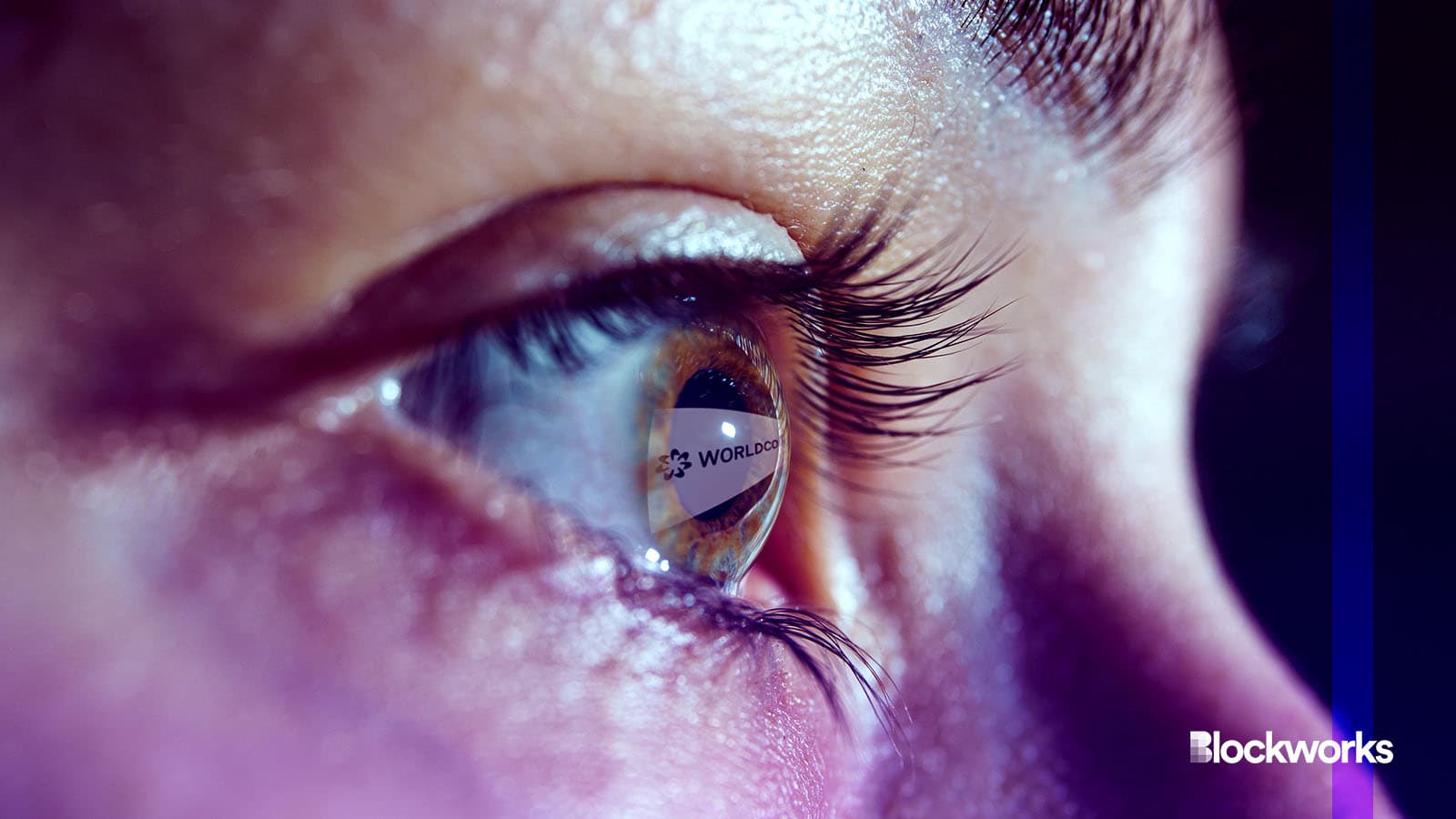Worldcoin rotates reward token scheme
After an initial phase of paying operator rewards in USDC, Worldcoin is transitioning to issuing these rewards in WLD tokens

Rokas Tenys/Shutterstock, modified by Blockworks
Crypto-based digital identity provider Worldcoin will transition operator rewards from USDC stablecoins to its WLD tokens starting next month.
Worldcoin had used USDC-based rewards as a temporary measure following its launch, a phase that’s now concluding.
Issuing operator rewards in WLD will add to the increasing circulation of its native token.
The WLD token debuted with a modest circulating supply of slightly over 100 million WLD, the team said in a blog on Sunday. Its max supply is 100 times higher at 10 billion.
“This was due to the goal of creating a network of as many human beings as possible. To achieve this, the majority of the WLD token supply will be given to new and existing users in the form of user grants over the years to come,” it added.
Blockworks has reached out to Worldcoin about the criteria used for compensating orb operators.
Since its launch on July 24, the WLD token’s circulating supply has increased from roughly 100 million to over 134 million, representing 1.34% of the total.
This rise is due to over 800,000 Orb-verified users claiming about 34 million WLD in free grants.
As of Oct. 22, the circulating supply of WLD includes 100 million tokens used for loans to market makers, around 34.3 million tokens given out as user grants and a little portion earned as operator rewards, the team said.
WLD’s circulating supply is expected to decrease on Oct. 24 because the market makers are due to return up to 25 million WLD from their initial 100 million WLD loan, as their agreement terms change.
They can choose to buy some tokens, but any amount not purchased will be deducted from the current supply, leading to a reduction.
The tokens are not available for use, purchase or access in the US.
Worldcoin was founded by tech entrepreneur Sam Altman, with the goal of creating a universal basic income system.
The project uses a device called the “Orb” to scan individuals’ irises, with the aim that each free crypto grant goes to a unique person.
These scans are conducted by operators who manage the Orbs, helping distribute Worldcoin globally by verifying human identity, an essential step in establishing a unique digital wallet for everyone, while curbing fraud.
The idea is to provide a form of financial equality and broad access to digital assets. However, the method — gathering biometric data — had sparks privacy concerns.
Despite Worldcoin’s reassurances that it does not store any personal data after verification, critics worry about potential data breaches or misuse of sensitive iris information.
The project is currently facing global scrutiny, with regulators worldwide being apprehensive regarding the company’s handling of personal and biometric data.
Get the news in your inbox. Explore Blockworks newsletters:
- The Breakdown: Decoding crypto and the markets. Daily.
- 0xResearch: Alpha in your inbox. Think like an analyst.






